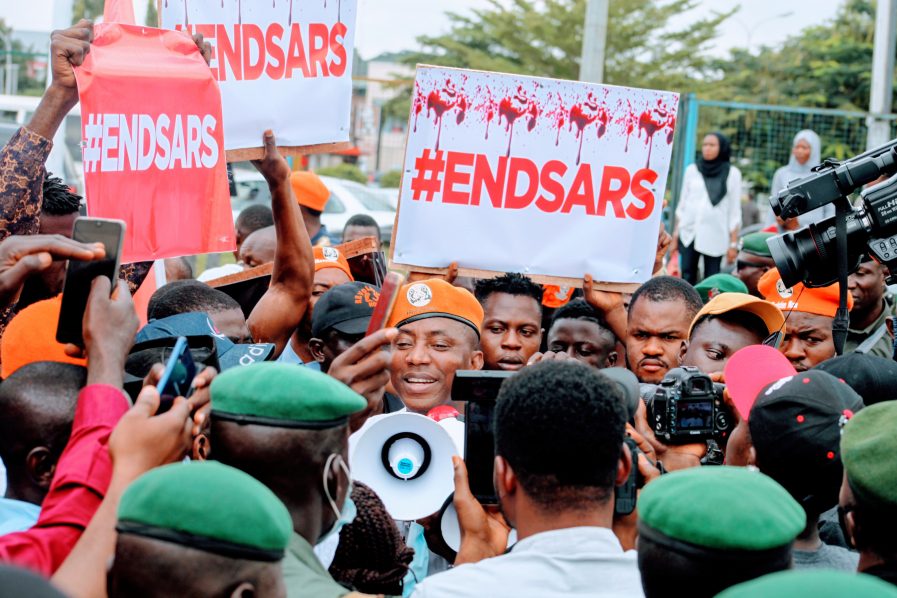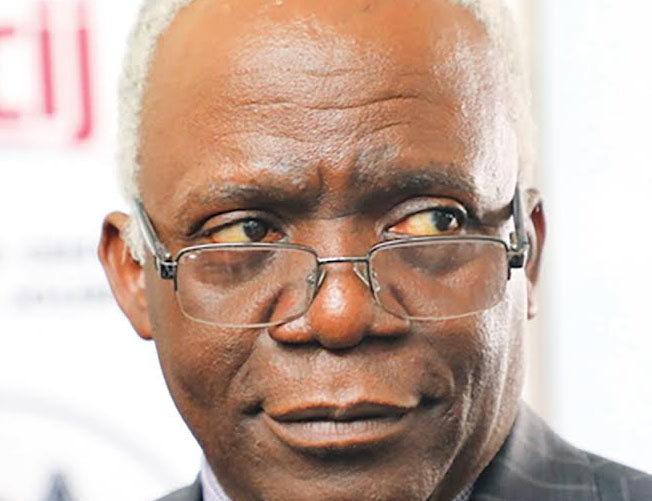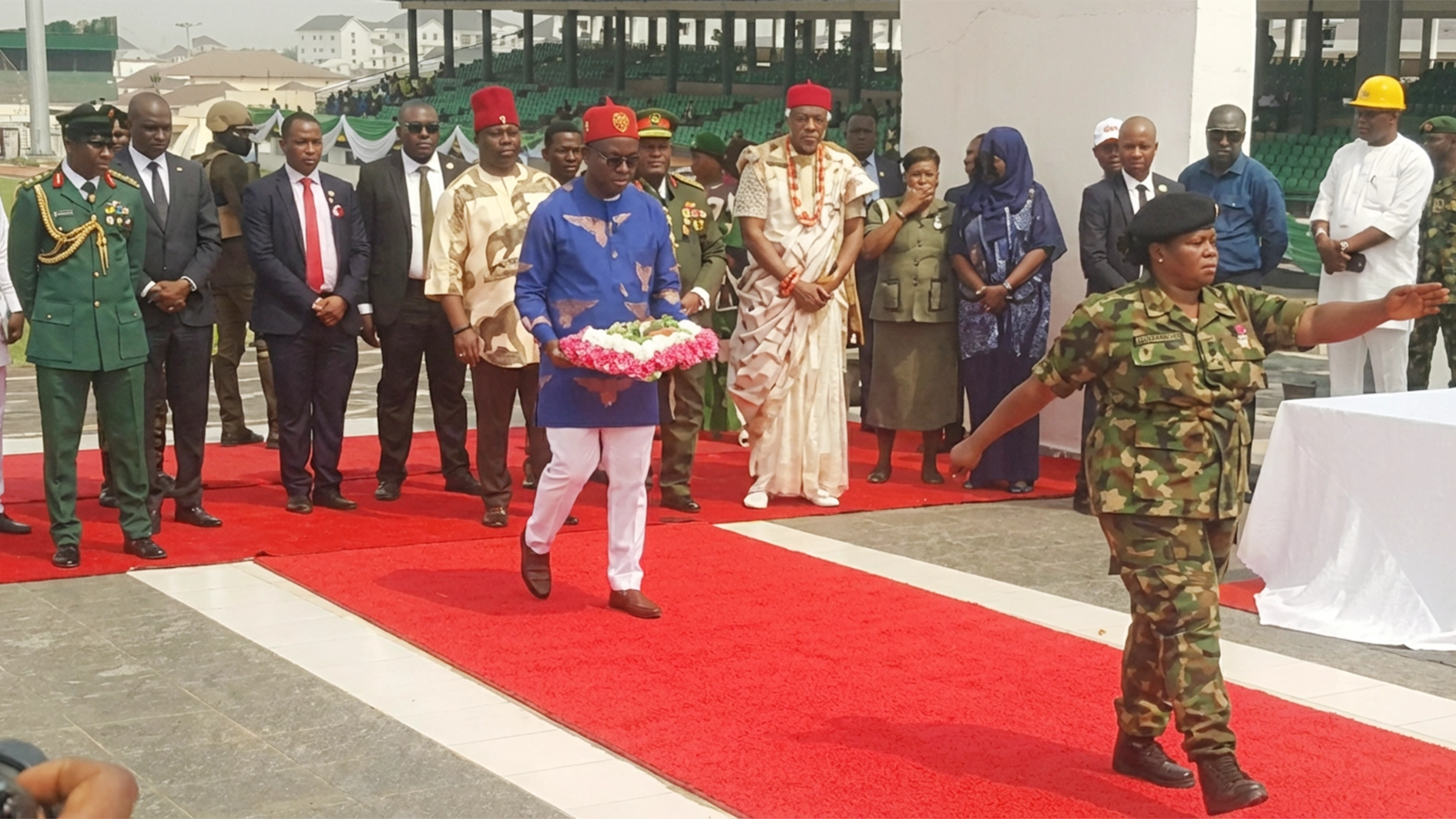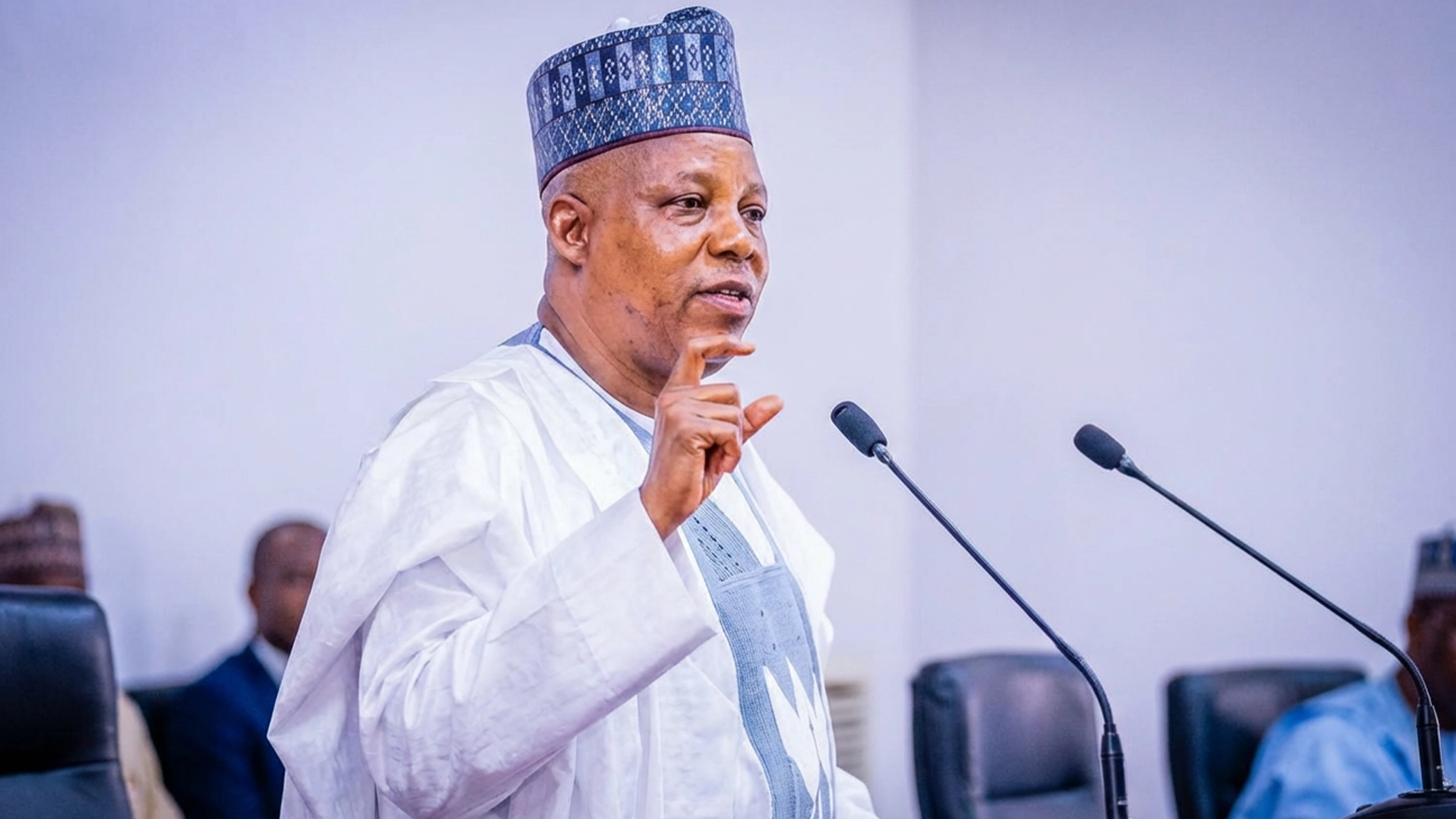
• Falana: Police reforms announced in aftermath of #EndSARS protests were panic measures
• Perpetrators escaping accountability over slow pace of justice, says Rinu
• Police brutality, extortion persist in civil land matters
• PSC: Lessons have been learnt, police taking citizens’ complaints seriously
Two things have defined the year 2020 in history – the year of the COVID-19 pandemic and global campaign against police brutality. On the second, the United States of America’s #BlackLivesMatter and Nigeria’s #EndSARS were epicentres of a global rally to end atrocities by rogue police officers such as arbitrary arrests, extortion, torture, and extrajudicial killings.
Just while the world was coping with lockdowns and new way of life occasioned by the dreaded Coronavirus, on May 25, 2020, George Floyd’s death sparked protests against racial injustice and police brutality across the United States with the birth of Black Lives Matter (BLM) movement after Derek Chauvin, a white officer was captured on video kneeling on Floyd’s neck for more than nine minutes while Floyd repeatedly said he couldn’t breathe.
In October, a movement slowly gathered momentum in Nigeria shortly after the nation’s 60th independence anniversary. It started as a small campaign after a video went viral of a man allegedly killed by operatives of the Special Anti-Robbery Squad (SARS), snowballing into a nationwide protest in a matter of days that shook Nigeria.
The protest, which morphed from social media campaigns into street demonstrations, reached its climax on October 20, 2020, when the Nigerian Army and police opened fire on peaceful unarmed protesters gathered at the Lekki toll gate in Lagos.
Hell was let loose the day after as angry youths went on rampage across Lagos and some states in the Southwest in protest against the shooting, burning down police stations in sight and other public institutions and facilities.
Three years after, it’s different outcomes for Nigeria and the United States. Floyd, who would have turned 50 years on October 14, 2023, got justice when Chauvin was found guilty of murder and sentenced to 22 years in state prison.
To mark what would’ve been Floyd’s 50th birthday, President Joe Biden called on Congress to pass “meaningful” police reform, saying he would continue to fight for police accountability.
Biden then signed an executive order that banned chokeholds, restricted no-knock warrants and established a database for police misconduct, and went on to say that “real and lasting” change needs to happen at the state and local levels, and that requires Congress to act.”
Unfortunately, in Nigeria, it’s still a recourse to old ways for the police despite a physical dismantling of the SARS.
Despite the setting up of Federal and states panel of inquiry that were headed by credible retired judges to investigate and make recommendations, the various reports that emanated became a subject of dispute between the governments that set it up and members of the probe panels, while recommended actions were jettisoned.
The Lagos State government was recently forced to suspend its planned mass burial of 103 bodies recovered in the wake of the October 2020 #EndSARS protest, following the controversy generated by the announcement in July after a leaked memo.
According to the Commissioner for Information and Strategy, Gbenga Omotosho, the planned mass burial “remains suspended to give people ample time to identify their relatives that may be among the corpses.”
He stated further that “up till now, nobody has shown up to identify any of the corpses. But the government has decided to give people more time.”
Also, an attempt by the state government to resume tolling at the Lekki toll plaza and Ikoyi Link Bridge has met some stiff resistance, with losses accrued by the state grossing billions of naira since 2020.
The Lekki-Ikoyi Link Bridge is estimated to generate about N10 million daily and N300 million per month, while the tollgate along the Lekki-Epe Expressway makes at least N16.6 million every day and N500 million monthly.
Today, stakeholders have expressed disappointment over the fact that police brutality, the major factor that triggered the #EndSARS protests, is still very much prevalent, just as all the reforms promised and made after October 20, 2020, mayhem have yielded little result.
Reacting, human rights and constitutional lawyer, Femi Falana, said the police reforms announced in the aftermath of the protests were panic measures.
According to him, “they were not meant to last because police brutality has long been incorporated in the neocolonial state apparatus. To deal with the menace on a permanent basis as demanded by the #EndSARS protesters, 28 out of the 36 state governments set up judicial commissions of enquiry. The panels probed sundry allegations of police brutality and submitted their reports.
“But state governments decided to white-wash the torture and other egregious infringements of the human rights of the Nigerian people exposed in the reports. Some token reparations were paid but the security personnel, who were indicted by the judicial panels, were not brought to book.
“The undertaking was made at the spur of the moment. Hence, no state government has set a human rights agency. However, the #EndSARS protesters have conscientise the Nigerian people. Since the protests occurred, complaints of police brutality are promptly attended to by police authorities. Encouraged by such reactions, cases of police brutality are published in the social media on a regular basis. In order not to be exposed, police personnel are more restrained than ever before in unleashing violence on the people.”

On whether justice had been done, Falana said: “Justice could not have been done as the Federal Government was made to believe that the young protesters wanted to sack the immediate past President Muhammadu Buhari administration. Hence, the unarmed protesters were massacred as if they were coup plotters.
“No doubt, the protests have forced the police to respect the rights of Nigerians to protest against injustice and oppression. Recently, members of the Nigeria Labour Congress held protests against the anti-people policies of the President Bola Tinubu administration.
“A few weeks ago, thousands of young people trooped to the streets to demand for justice in respect of the questionable death of the Nigerian rapper and singer, Ilerioluwa Oladimeji Aloba, popularly known as MohBad. Unlike before, the police did not attack the workers and the young protesters. So, through the #EndSARS protesters, Nigerians have regained the fundamental rights of freedom of assembly and freedom of expression.”
Another lawyer, Dr Yemi Omodele, said though Nigerians and particularly the victims of #EndSARS, would never forget October 20 of every year, the day is a reminder to all about police brutality, misnomers, and misdeeds in Nigeria. He, however, said that the Nigeria police cannot change despite the huge sum of money the federal government is spending on policing.
‘
A human rights activist, Wale Okunniyi, said the bitter part of the #EndSARS protest was the failure of the youths to have a clear leadership that could have engaged with the government on their behalf. “For the youngsters, the lesson learnt is failure of not having a clear leadership; but on the part of Nigeria, there was nothing learnt.”
Taking a contrary view from Falana, Okunniyi said he couldn’t see any form of change with the police despite various reforms initiated after the mayhem.
Also speaking, another human rights activist, Achike Chude, expressed displeasure that nothing whatsoever seems to have been learnt from the incident three years after. He noted that police brutality has not stopped or subsided but it has just been window-dressed. “Many Nigerian youths are still falling victims of police brutality.”
One of the leaders of the #EndSARS movement, Rinu Oduala, said the pace of justice has been slow, allowing many perpetrators to escape accountability.
She said: “Unfortunately, three years later, citizens remain at the mercy of Nigerian police officers. True justice is about accountability, transparency, and human rights protection under the rule of law. But are these ideals visible in our current reality? How many reforms have actually materialized and improved police conduct and accountability?
“Despite the widespread demand for holding perpetrators of extrajudicial killings and human rights violations accountable, the findings and recommendations of the judicial panels have largely been disregarded, met with governmental silence. The pace of justice has been slow, allowing many perpetrators to escape accountability. These police officers have resumed their oppressive activities on the streets in large numbers, continuing the cycle of extortions, harassment, brutality, and extrajudicial killings.
“Rather than internalize the lessons from the peaceful protests of 2020, they continue to maintain hostile attitudes toward change, treating citizens with disdain. The long-standing systemic challenges within the police institution have not stopped, just like the corruption in the force. Three years after, SARS is still alive and the fight for justice and accountability is far from over.”
One area where police brutality against civilians is rife is police involvement in land matters and extortion, which has hit the rooftop.
But pundits in the security circle believe the police and policing is a reflection of the society. According to spokesman of the Police Service Commission (PSC), Ikechukwu Ani, “there are serious lessons learnt in the aftermath of the crisis. There is a deliberate shift to the citizen approach to policing. The Compliance Monitoring Unit set up by the Commission is obviously to ensure that citizens’ complaints against police are given the required attention.
“The PSC CMU monitors what happens in the Police Complaints Unit to ensure that police respond to complaints from the citizens. The Commission is also supporting programmes to further train the police for better effectiveness and efficiency.”
A Certified Protection Officer, Frank Oshanugor said: “Three years after the #EndSARS saga, I would say that not much has changed and no lessons learnt as brutality by some bad elements in the Nigeria Police Force is still prevailing. The only thing that has changed is just the name SARS, which has officially been scrapped but the personalities that constituted the old SARS are still in the force with their brutal attitude.”
“With respect to shaping police morale left in responsible policing, I would say that the scrapping of SARS as an arm of the police brought some momentary sober reflection among the officers and men of the unit. It humbled some of the operatives who were almost seeing themselves as thin gods. Even though they still exhibit their old manners in their current postings, the degree of arrogance has reduced as it is now clear to them that no condition is permanent.”
According to security analyst, Christopher Oji, “the police now know that if the populace do not want them, they won’t be able to operate. They now understand clearly that they can’t shoot people and go scot-free.
“With the help of social media, the public, especially the youths, are now courageous to expose police brutality and extortions. Before the protest, an average civilian would not waste time reporting police abuses to the authorities, because the officers would not be punished and they would end up coming after the person. Today, an average Nigerian has 50 per cent confidence that he would get justice from police authorities.
“Again, all the recommendations after the protest have not been met. The police were advised not to use live bullets during protests, but it is still being used. It was recommended that the police should use water cannons and stunt guns to disperse protesters, but they have not complied with the recommendations.
Also speaking, president of Human Rights Writers Association of Nigeria (HURIWA), Emmanuel Onwubiko, said: “Three years after #EndSARS, it is safe to say that the police operatives and their officers have rather learnt the lesson upside down and have become even more devastatingly brutal to citizens they ought to work for, protect and enforcement the law for the safety of the society, the security of lives and property of citizens.
“Over 85 per cent of police personnel have become very incompetent, unprofessional, and grossly undisciplined. Bribe for bail still goes on. Extortion and other criminal tendencies by police have multiplied. The reforms claimed to have been introduced by the Federal Government did not even happen in reality except on the pages of newspapers.






